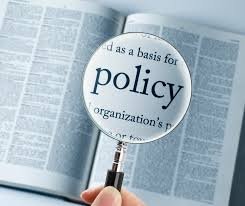Sales success starts with setting the foundation right from the beginning. And that foundation is built during sales onboarding. The current fast-paced business environment calls for onboarding processes that not only get new hires up to speed but also get them prepared to solve complex problems and hit the ground running. It is telling that the estimated 80% of employees who feel undertrained during onboarding plan to leave their employer soon. What’s implicit is the connection between training and retention. The traditional methods of training are no longer effective. Time to rethink sales onboarding: something agile, personal, and always learning and evolving to stay a cut above the rest.
Ready to elevate your onboarding strategy? Let’s get into it!
Prioritize Outcome-Based Onboarding
Sales success begins with a well-structured foundation, and the key to building that foundation is a sales onboarding plan that prioritizes the skills and knowledge of representatives needed to thrive in the modern business world. The days of training sales teams to simply push products are over. Today, it’s all about solving real customer problems and delivering measurable outcomes.
By focusing on outcome-based learning and integrating value-driven strategies into your sales onboarding plan, you ensure your team is set up to not just sell but to solve. That’s the kind of onboarding that transforms representatives into trusted advisors and partners to your clients. Let’s break down how to redefine sales onboarding to meet these demands:
- The Shift from Product to Problem-Solving: New hires need to understand why customers need their products and services. The focus should be on teaching sales representatives how to uncover customer pain points and match those problems with actionable solutions. Instead of pushing products, they’re addressing real client needs, which results in stronger, trust-based relationships.
A clear sales onboarding definition involves a structured process designed to integrate new sales hires into the company, equipping them with the knowledge and skills necessary to succeed in their roles.
- Strategic Value Creation: Equip your team to communicate how your product creates tangible value for clients, whether it’s through boosting revenue, cutting costs, or improving efficiency. Sales onboarding should train representatives to articulate how each solution aligns with client business outcomes, not just its technical features.
Continuous Learning
Sales success doesn’t stop after a 90-day onboarding period, and your training program shouldn’t either. In today’s fast-evolving business environment, continuous learning, or what’s now called “ever boarding” is the key to keeping your sales team sharp, agile, and ready to adapt to new challenges. Let’s dive into how you can integrate everboarding into your strategy for onboarding sales teams and elevate performance over the long haul:
- Ongoing Skill Development: Learning shouldn’t stop after the first few months. The best sales teams are those that continuously update their skills. Whether it’s refreshing negotiation techniques, staying on top of new product features, or understanding the latest industry trends, regular training ensures representatives stay competitive.
- Industry Insights and Updates: The market is always evolving, and your team needs to evolve with it. Incorporate sessions that update them on the latest industry shifts and competitor developments. This ensures your onboarding sales team remains informed and ready to position your company as the leading solution for customers’ changing needs.
Multimodal Training for Real-World Readiness
Relying on just one method of training won’t cut it. Instead, blend various formats like interactive online modules, real-world role-play scenarios, and peer-to-peer coaching to keep the learning engaging and relevant. This multimodal approach ensures that your team not only absorbs the information but can also adapt it to different sales environments.
Anticipate and Overcome Buyer Objections
Sales representatives today are dealing with more informed, savvy buyers, which means they need to be ready for deeper objections and more complex negotiations. An effective sales onboarding process must equip your team to anticipate and overcome these challenges with precision and confidence.
- Tackle Modern Buyer Concerns: Buyers are no longer asking surface-level questions, they’re diving deep into budget constraints, competitor comparisons, and implementation risks. Ensure your sales representatives are prepared to handle these tougher objections by offering personalized messaging and strategic negotiation techniques. Training them to navigate these conversations confidently will help convert even the most sceptical buyers.
- Address Implementation Challenges: Buyers today are more concerned than ever about how smoothly a solution will integrate with their current systems. Train your team to highlight your company’s strengths in seamless implementation and post-sale support to ease these concerns.
Data-Driven Decision Support
Teach your representatives how to use data to empower buyers in their decision-making process. By presenting relevant case studies, industry reports, or performance analytics, your team can help clients feel more secure in their choices, reducing the perceived risk and building trust in the solution offered.
Tailor Training to Different Sales Roles
Sales onboarding needs to be agile, flexible, and tailored to meet the unique needs of different sales roles. Whether it’s account management, lead generation, or field sales, the right approach can make all the difference in how quickly and effectively new team members start driving results.
Different Roles, Different Needs
Each sales role has its own set of challenges and goals. A generic onboarding program won’t cut it. Instead, tailor the sales onboarding process to address the specific responsibilities of each role. This approach ensures that everyone, from account managers to lead generators, gets the precise training and knowledge they need to excel.
Role-Specific Tools and Technologies
A great salesperson is only as good as their ability to leverage the tools at their disposal. Train your team on the specific CRM systems, analytics platforms, and other technologies they’ll be using daily. When sales representatives are equipped with the right tools and understand how to use them effectively, they become more efficient, agile, and capable of exceeding expectations.
Make Training Feel Personal
Customizing your sales onboarding program is crucial to getting the most out of each member of your team. It’s not just about checking off a list of tasks but delivering a tailored experience that empowers each individual in their specific role. Personalization is the sparkle of a great sales onboarding experience. By tailoring your onboarding program, you make every representative feel that their unique contribution is valued from day one. This sense of individual importance can be the key to boosting engagement and performance, without ever feeling like a generic process.
Frequently Asked Questions (FAQs)
1. What are the key components of a successful sales onboarding process?
Outcome-based learning, continuous education, and role-specific training are essential for effective onboarding.
2. How can companies ensure that sales training is retained over time?
Implement ever-boarding practices, using multimodal training and regular assessments to reinforce learning continuously.
3. What role do frontline managers play in sales onboarding success?
Sales managers must act as coaches, providing ongoing feedback and ensuring that the learning aligns with daily sales tasks and objectives.
Bottom Line
Great sales onboarding is about laying the foundation for continuous growth. By adopting outcome-based learning, tailoring training to specific roles, and involving managers in the process, businesses can redefine the entire onboarding sales team experience for long-term success. With the right approach, onboarding the sales team becomes a strategic advantage that keeps your representatives sharp, agile, and ready to exceed targets. Ready to take your sales onboarding to the next level? Now’s the time to put these modern strategies into action.

Daniel J. Morgan is the founder of Invidiata Magazine, a premier publication showcasing luxury living, arts, and culture. With a passion for excellence, Daniel has established the magazine as a beacon of sophistication and refinement, captivating discerning audiences worldwide.





